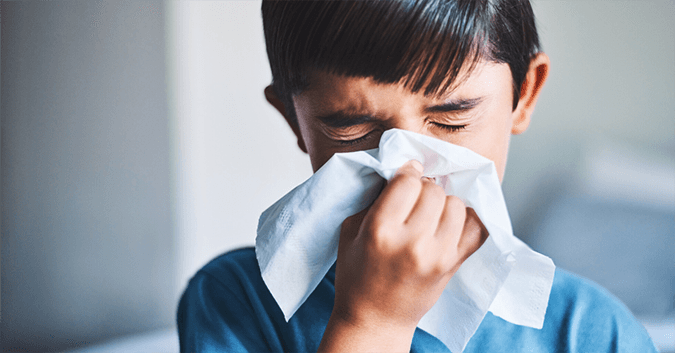
Do I Have Allergies or a Cold?
When you’re experiencing a runny nose and a cough, it’s easy
to shrug them off as signs that you have a cold. However, these symptoms
may also point to allergies. While seasonal allergies often strike during
warmer times of the year, environmental allergies can wreak havoc on your body year-round.
Knowing the difference between the two can help you to find the right remedy,
getting you back to 100% as soon as possible.
Allergy Symptoms
Allergies are one of the most common chronic diseases. While this may sound
alarming, chronic disease refers to a condition that lasts for an
extended period of time occurs often.
Allergies occur when your body identifies a substance as harmful and overreacts
in an attempt to protect your body.
Environmental allergies are generally due to exposure to certain substances
in your surroundings, such as dust, mold, or pet dander. The symptoms
that arise are referred to as an allergic reaction. Some of the most common
allergic reaction symptoms include:
- Watery eyes
- Runny nose
- Nasal congestion
- Sneezing
- Sore throat
- Coughing
- Rashes
- Hives
When to See a Doctor
While many allergy issues do not require treatment, others can interfere
with day-to-day activities or even be life-threatening. You should talk
with a medical professional if you experience any of the following
symptoms:
- Difficulty breathing
- You experience your allergy symptoms for several months out of the year
- Over-the-counter medications don’t relieve symptoms
- You often wheeze or cough
- You have asthma attacks even when taking asthma medication
- You feel tightness in your chest
Cold Symptoms
The common cold is a viral infection that mostly affects people during
the winter and spring. While symptoms may vary from person to person,
here are some of the most
common signs that may point to the presence of the respiratory infection:
- Sore or irritated throat
- Coughing
- Runny nose
- Sneezing
- Headaches
- Body aches
When to See a Doctor
While most people recover on their own from a cold in about seven-10 days,
you should see a medical professional if you experience any of the following:
- Symptoms last longer than ten days
- Symptoms are abnormally severe
- If an infant younger than three months has a fever
Walk-in-Clinic in Gillette, Wyoming
From the sniffles to sneezing, it can be hard to determine if it’s
a cold or allergies. That's where the
Walk-in Clinic in Gillette, Wyoming, can help. We can provide you with the personal and
quality care that you need.
Save your spot in line or walk-in today! Learn more at
www.cchwyo.org/wic.